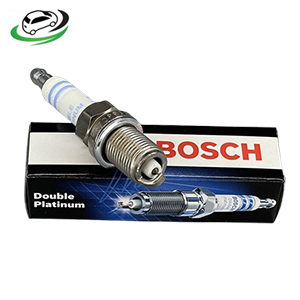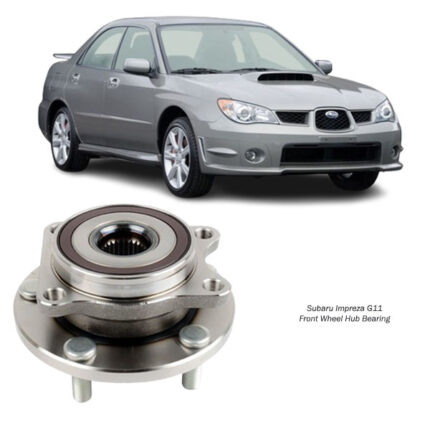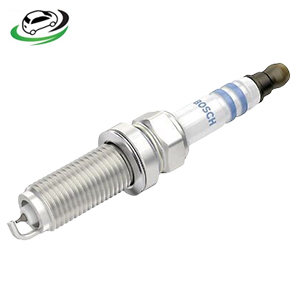-20%
Get Universal Bosch Spark Plug VR8SII33X 96339 in Kenya
Spark plugs are essential components in internal combustion engines, serving the critical function of igniting the air-fuel mixture in the combustion chamber. This ignition process is fundamental to engine operation, influencing efficiency, performance, and emissions. In this comprehensive guide, we’ll explore the anatomy, function, types, and significance of spark plugs in detail.
Anatomy of a Spark Plug
A spark plug consists of several key components that work together to generate and deliver the spark needed for combustion:
- Shell: The outer shell of the spark plug is typically made from metal, often nickel-plated steel, to provide structural integrity and heat dissipation.
- Insulator: Inside the shell, there is a ceramic insulator that separates the center electrode from the shell. The insulator is designed to withstand high temperatures and provide electrical insulation.
- Center Electrode: This is the central conductor through which the high-voltage electricity from the ignition system travels. It protrudes into the combustion chamber and is exposed to the air-fuel mixture.
- Ground Electrode: Positioned opposite the center electrode, the ground electrode is also made of metal and forms a gap with the center electrode. The spark jumps across this gap to ignite the air-fuel mixture.
- Terminal: The terminal connects the spark plug to the ignition system through a spark plug wire or coil-on-plug design, allowing electrical current to flow to the center electrode.
Function of Spark Plugs
The primary function of a spark plug is to generate a high-voltage electrical spark at the correct moment to ignite the air-fuel mixture in each cylinder’s combustion chamber. This ignition process is crucial for:
- Starting the Combustion Cycle: The spark plug initiates the combustion process by igniting the compressed air-fuel mixture, converting chemical energy into mechanical energy that powers the engine.
- Ensuring Smooth Engine Operation: Proper ignition timing and consistent spark performance contribute to smooth engine operation, preventing misfires and maintaining optimal performance.
- Emission Control: Efficient combustion facilitated by spark plugs helps reduce emissions of harmful pollutants, ensuring compliance with environmental regulations.
Types of Spark Plugs
Spark plugs are categorized based on their construction materials and design, each offering unique advantages suited to different engine types and operating conditions:
- Copper Core Spark Plugs: These are the most basic and affordable spark plugs, featuring a copper core center electrode. They offer good conductivity but have shorter lifespans compared to other types.
- Platinum Spark Plugs: Platinum spark plugs have a platinum alloy or platinum-tipped center electrode. They offer improved durability and longevity compared to copper core plugs, making them a popular choice for modern engines.
- Iridium Spark Plugs: Iridium spark plugs have a center electrode made of iridium, a metal known for its hardness and high melting point. They provide even better durability and longevity than platinum plugs and are often used in high-performance engines.
- Double Platinum/Iridium Spark Plugs: These spark plugs feature platinum or iridium on both the center and ground electrodes. They offer enhanced performance and longevity, making them suitable for high-performance or demanding applications.
- Performance Spark Plugs: Designed for specific performance needs, these spark plugs may feature unique electrode designs, materials, or heat ranges to optimize ignition performance under extreme conditions.
Importance of Spark Plugs
Spark plugs play a critical role in engine performance, efficiency, and reliability:
- Fuel Efficiency: Efficient combustion facilitated by spark plugs improves fuel efficiency by ensuring complete fuel combustion and reducing wasted fuel.
- Engine Performance: Proper spark plug operation contributes to smooth acceleration, consistent power delivery, and overall engine responsiveness.
- Emission Control: By igniting the air-fuel mixture efficiently, spark plugs help minimize emissions of pollutants such as carbon monoxide (CO) and hydrocarbons (HC), contributing to cleaner air and compliance with emission standards.
- Engine Longevity: Choosing the right spark plugs and maintaining them properly can extend the lifespan of an engine by reducing wear and preventing issues such as misfires or incomplete combustion.
Maintenance and Replacement
Regular inspection and maintenance of spark plugs are essential to ensure optimal engine performance and longevity:
- Replacement Intervals: Spark plugs typically need to be replaced according to the manufacturer’s recommendations, which can vary based on plug type, engine design, and driving conditions.
- Inspection Signs: Signs that spark plugs may need replacement include rough idling, difficulty starting the engine, reduced fuel efficiency, or engine misfires.
- Professional Service: While replacing spark plugs is relatively straightforward, it’s recommended to consult a professional mechanic for proper installation and to ensure the correct spark plug type and specifications are used for your vehicle.
Follow us on Facebook for more parts.



